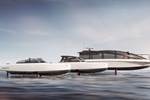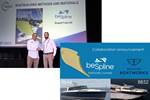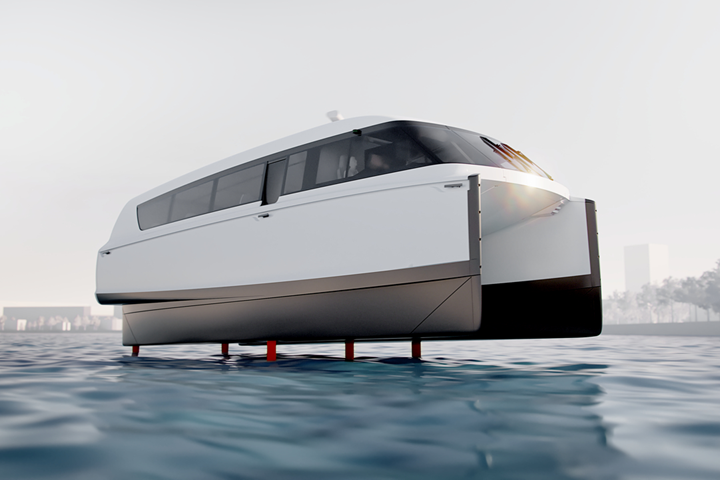Sicomin epoxy resins power Candela composite boat construction
Candela’s zero-emission P-12 foiling passenger shuttle offers low vessel weight, higher journey frequency with its carbon fiber-reinforced epoxy fabrication.
Share
Read Next
Sicomin (Châteauneuf les Martigues, France), supplier of epoxy resin systems, announces its latest partnership with electric foiling boat manufacturer Candela (Stockholm, Sweden). Sicomin will supply a complete package of epoxy resins and adhesives for Candela’s latest project, the new P-12 foiling passenger shuttle (read “Carbon fiber composite hydrofoils to enable “world’s fastest” electric ferry”).
Candela’s innovative approach to sustainable boating has generated international attention. Its novel zero-emission, 12-meter passenger shuttle has been conceived to enable higher journey frequencies and increase use across urban water transit networks.
A full carbon fiber-reinforced epoxy construction results in a low vessel weight that enables Candela to provide operators with capacity for 30 passengers and a range of up to 60 nautical miles at 25 knots. Intended to replace larger, slower, fossil-fueled ships, the P-12 is reported to use 80% less energy than a conventional ferry while producing no local emissions and removing the risk of fuel or oil spillage.
The P-12 has been developed using the same lightweight, infused composite, foiling DNA for Candela’s earlier C-7 and C-8 leisure craft and is built using the same high-performance DNV-GL type approved Sicomin resins and adhesives as the previous models. Sicomin’s SR1710 epoxy infusion resin produces high laminate mechanical properties and delivers high performance in hot and wet conditions, critical for such a lightweight foiling craft.
Sicomin’s premium epoxy adhesive, Isobond SR7200HTG is also used extensively in the P-12 construction for bonding of the carbon fiber hull’s internal structure and final assembly of the vessel’s composite components. Suitable for both thick and thin bond lines, SR7200HTG provides optimized bonding performance and is particularly resistant to microcracking in long-term fatigue.
“Sicomin epoxies have helped us create the lightweight structures that give Candela vessels their game-changing performance,” Karl Fägersten, chief procurement officer at Candela, says. “Thanks to this, we can provide fast, cost-effective and more comfortable zero-emission journeys on our waterways.”
Related Content
-
Optimizing a thermoplastic composite helicopter door hinge
9T Labs used Additive Fusion Technology to iterate CFRTP designs, fully exploit continuous fiber printing and outperform stainless steel and black metal designs in failure load and weight.
-
Jeep all-composite roof receivers achieve steel performance at low mass
Ultrashort carbon fiber/PPA replaces steel on rooftop brackets to hold Jeep soft tops, hardtops.
-
Developing repairs for thermoplastic composite aerostructures
HyPatchRepair project proves feasibility of automated process chain for welded thermoplastic composite patch repairs.

















